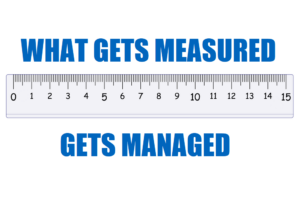 For many businesses the challenges of managing growth is never fully resolved. Either the business cannot fulfil its full potential, or that potential is constrained. If you are struggling to manage a growing business, what role should CRM play?
For many businesses the challenges of managing growth is never fully resolved. Either the business cannot fulfil its full potential, or that potential is constrained. If you are struggling to manage a growing business, what role should CRM play?
“The first rule of any technology used in a business is that automation applied to an efficient operation will magnify the efficiency.
The second is that automation applied to an inefficient operation will magnify the inefficiency.” ‚Äî Bill Gates, co-founder of Microsoft
What does business growth look like?
A strange question, but bear with me. Many of our clients will report their growth as between 15 and 30% per annum. Significant, but not in the same league as dotcom start-ups with growth of 800% per annum. So before looking at CRM to manage your growth, think about the scale of the problem you are trying to address.
If you are in the market for a product that will help you manage growth levels of between 15 – 50%, your tool will have a different focus to a system that is used to manage a growth explosion. I would imagine that you are looking for a tool to impose and measure processes and progress. If, on the other hand, your business growth is exploding, you probably need something to hang on to for the wild ride ahead! The difference is important to recognise – all too often we see clients who think they need a CRM system to scale for growth which they are unlikely to achieve, even in the medium term.
“What gets measured gets managed”
It’s an old clich√©, loved by business gurus the world over, and no less true because it’s a clich√©.
If you are thinking about using CRM to manage your sales processes, then start with a hard look at what you want to measure:
- Sales by Rep.
- Sales calls by Rep.
- Number of phone calls / visits / meetings by Rep.
- Total pipeline by Rep. by period
All fairly typical stuff – and all achievable by pretty much any CRM product on the market today. What this does not do is identify what you will manage. Just counting things is not managing! The good news is you don’t need to pay a sales manager to count things. You need sales managers to:
- Improve the ratios between numbers
- Design, implement and refine sales processes
- Mentor and guide sales people
- Motivate sales people to achieve more
Which is why we always recommend that your CRM tool be configured to help sales managers do these things.
As with any improvement project, it is important to start with a baseline. “Where are we now?” and from that, identify where we you want to go. Defining the route between those two points will determine the steps you need to take. Sometimes it’s as simple as breaking the target into more manageable chunks – the more you do this, the clearer what you have to do can become. Translating those actions into tasks and activities in CRM makes the counting and measuring a by-product of using the CRM system.
The mark of really great CRM implementations is that they can quickly and easily be reconfigured to meet changing needs. Indeed, the data you produce should be used to continually further refine and improve the process. All these little steps and activities should therefore not be set in stone. Learning from what your most successful sales people do whilst helping everyone else over-achieve their sales targets pretty much ensures the success of your CRM initiatives.
So, “counting things” should be a by-product of CRM system use: what you count should be determined by the sales managers, how you improve performance is the result of these working together.




